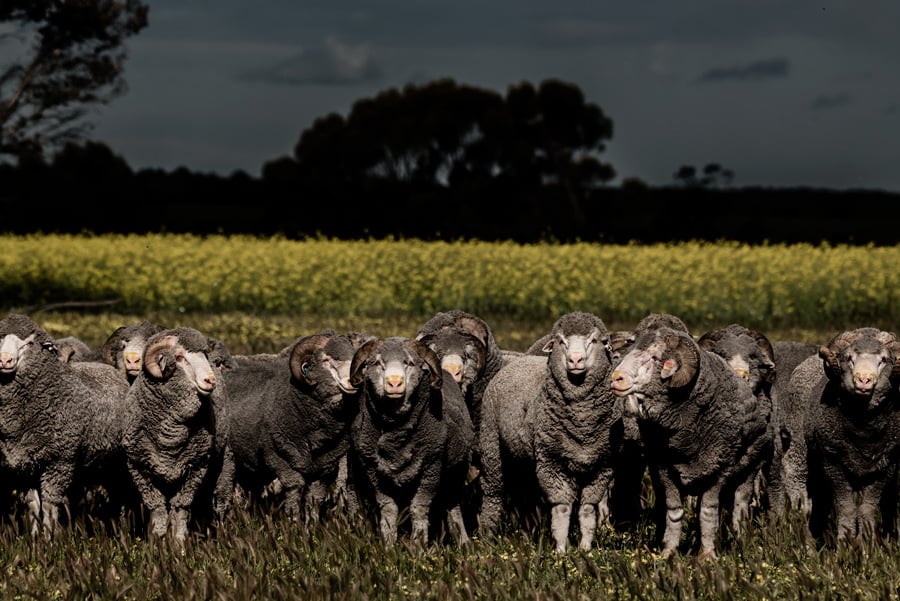Join us in pioneering an integrated land management solution that restores nature, boosts productivity, and strengthens climate resilience in Western Australian farming systems.
What is the opportunity?
In Western Australia’s mixed cropping and livestock regions, marginal lands face challenges with salinity and erosion. While native revegetation can address these challenges, landholders lack evidence-based frameworks for managing these systems productively. Specifically, there's a need to understand how to balance livestock grazing with biodiversity restoration, carbon sequestration, and improved soil health. Without clear guidance and demonstration, native planting systems remain underutilised or mismanaged, limiting their potential to regenerate landscapes and deliver value. Inadequate integration of these systems into traditional farm planning and a lack of regionally appropriate best-practice models has left farmers without the tools they need to optimise land use, increase resilience to climate extremes, and participate in emerging environmental markets.
What is this project's solution?
This project will demonstrate a science-based, integrated approach to Shade, Shelter, Fodder (SSF) systems—using native multi-species revegetation to regenerate degraded land while supporting livestock production and sequestering carbon. By assessing existing SSF sites across WA and applying key learnings to a large-scale demonstration at Rylington Park, this initiative will generate practical, region-specific guidance for landholders. Through ecological monitoring, carbon accounting, and productivity assessments, the project will validate SSF as a scalable nature-based solution. It will also deliver management frameworks and technical resources to optimise these systems for environmental and economic benefit. As a live demonstration and research hub, Rylington Park will support knowledge transfer to farmers across the region, encouraging broader adoption and enabling participation in biodiversity and carbon markets.
What is the investment ask?
We are seeking an investment of AUD $300,000 over 3 years to co-fund research, implementation, and knowledge transfer.

What are the benefits of involvement?
Investors have the opportunity to support a pioneering model that regenerates farmland, boosts productivity, and opens pathways to environmental markets for Australian woolgrowers. By supporting this project, you demonstrate environmental leadership and a commitment to sustainable agriculture and building supply chain resilience. You’ll gain visibility through project communications, access to cutting-edge data, and a direct role in supporting solutions that bridge biodiversity, carbon farming, and rural economic resilience.
What is the Project Plan?
This 3-year project will be delivered in three key components:
Phase 1 – Survey and Assessment of Existing SSF Sites: We will assess 10 SSF sites across WA’s Wheatbelt, evaluating plant survival, carbon sequestration, soil condition, and biodiversity improvements. Landholder interviews and ecological surveys will identify best practices and management strategies.
Phase 2 – Implementation at Rylington Park: Using insights from Component 1, we will plan and implement a 70+ ha SSF system at Rylington Park. Strategic plantings will address saline and degraded areas, improve grazing paddocks, and enhance riparian corridors. The system will be registered as a carbon farming project under the Clean Energy Regulator's Environmental Planting method.
Phase 3 – Knowledge Transfer and Extension: Rylington Park will serve as a live demonstration site. Field days, training events, and the development of management guidelines will engage farmers, researchers, and regional stakeholders. All learnings will be shared through the Rylington Park Agricultural Institute, with the goal of supporting broader on-farm adoption.
Deliverables will include site assessment reports, planting designs, carbon and biodiversity metrics, and practical management tools aligned with frameworks such as the Nature Repair Market, SEEA-EA, and TNFD.
What is your expected participation?
There is no expectation, although if there are opportunities to collaborate on this (or other) projects we would love to hear from you.
Key Project Facilitator
How to get involved?
Schedule an initial meeting today to review project plans and understand the impact of your investment.
Please contact: James Murray - Philanthropy Manager – Greening Australia
jmurray@greeningaustralia.org.au